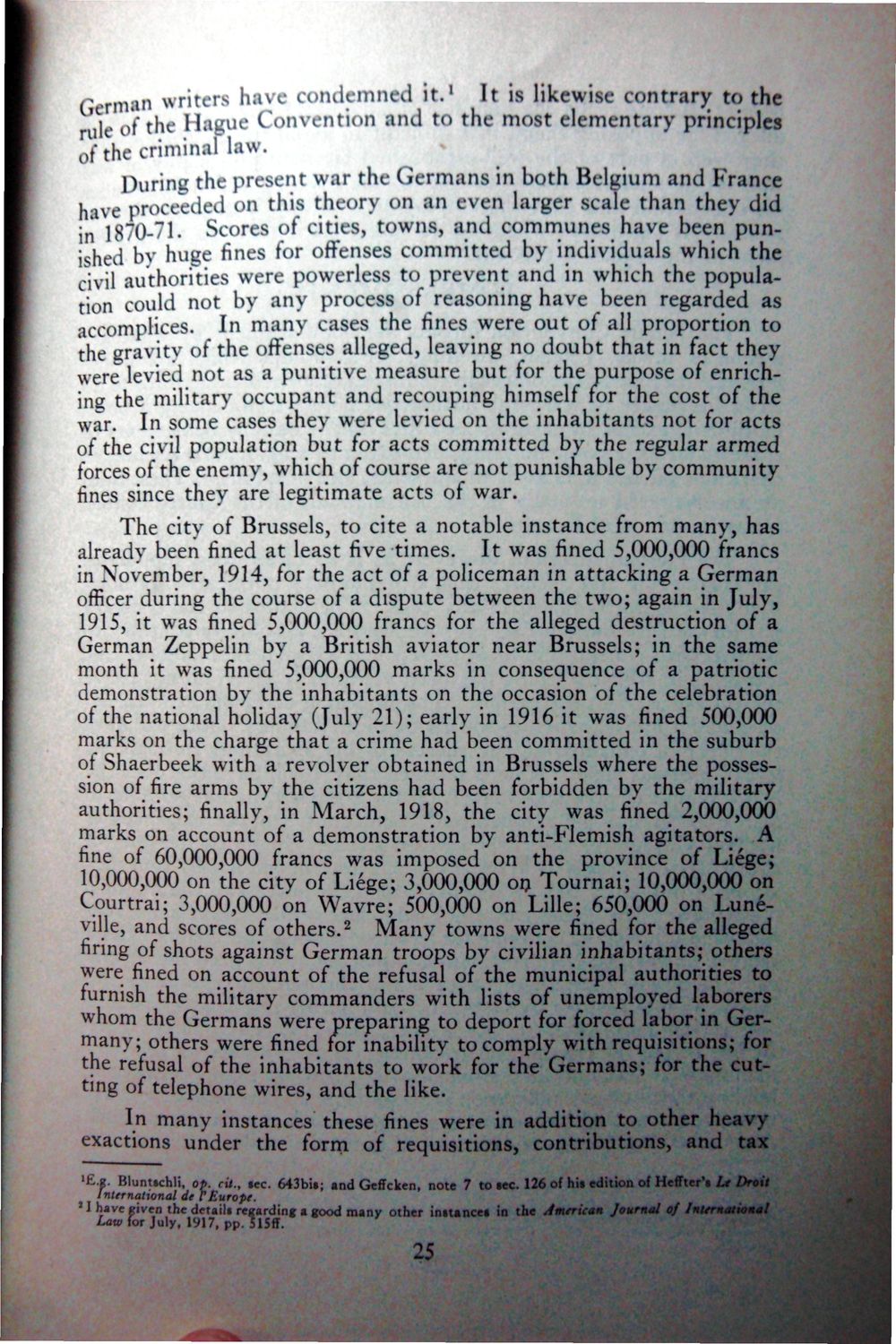| |
| |
Caption: War Publications - WWI Compilation 1923 - Article 14
This is a reduced-resolution page image for fast online browsing.

EXTRACTED TEXT FROM PAGE:
fcrman writers have condemned it. It is likewise contrary to the \ of the Hague Convention and to the most elementary principles of the criminal law. During the present war the Germans in both Belgium and France have proceeded on this theory on an even larger scale than they did in 1870-71. Scores of cities, towns, and communes have been punished by huge fines for offenses committed by individuals which the civil authorities were powerless to prevent and in which the population could not by any process of reasoning have been regarded as accomplices. In many cases the fines were out of all proportion to the gravity of the offenses alleged, leaving no doubt that in fact they were levied not as a punitive measure but for the purpose of enriching the military occupant and recouping himself for the cost of the war. In some cases they were levied on the inhabitants not for acts of the civil population but for acts committed by the regular armed forces of the enemy, which of course are not punishable by community fines since they are legitimate acts of war. The city of Brussels, to cite a notable instance from many, has already been fined at least five times. It was fined 5,000,000 francs in November, 1914, for the act of a policeman in attacking a German officer during the course of a dispute between the two; again in July, 1915, it was fined 5,000,000 francs for the alleged destruction of a German Zeppelin by a British aviator near Brussels; in the same month it was fined 5,000,000 marks in consequence of a patriotic demonstration by the inhabitants on the occasion of the celebration of the national holiday (July 21); early in 1916 it was fined 500,000 marks on the charge that a crime had been committed in the suburb of Shaerbeek with a revolver obtained in Brussels where the possession of fire arms by the citizens had been forbidden by the military authorities; finally, in March, 1918, the city was fined 2,000,000 marks on account of a demonstration by anti-Flemish agitators. A fine of 60,000,000 francs was imposed on the province of Liege; 10,000,000 on the city of Liege; 3,000,000 or> Tournai; 10,000,000 on Courtrai; 3,000,000 on Wavre; 500,000 on Lille; 650,000 on Lune2 ville, and scores of others. Many towns were fined for the alleged firing of shots against German troops by civilian inhabitants; others were fined on account of the refusal of the municipal authorities to furnish the military commanders with lists of unemployed laborers whom the Germans were preparing to deport for forced labor in Germany; others were fined tor inability to comply with requisitions; for the refusal of the inhabitants to work for the Germans; for the cutting of telephone wires, and the like. In many instances these fines were in addition to other heavy exactions under the form of requisitions, contributions, and tax p. cit.y ice. 643bU; ar VEurope. etaili regarding a good July, 1917, pp. 515fT. DTP 1 Law 25
| |